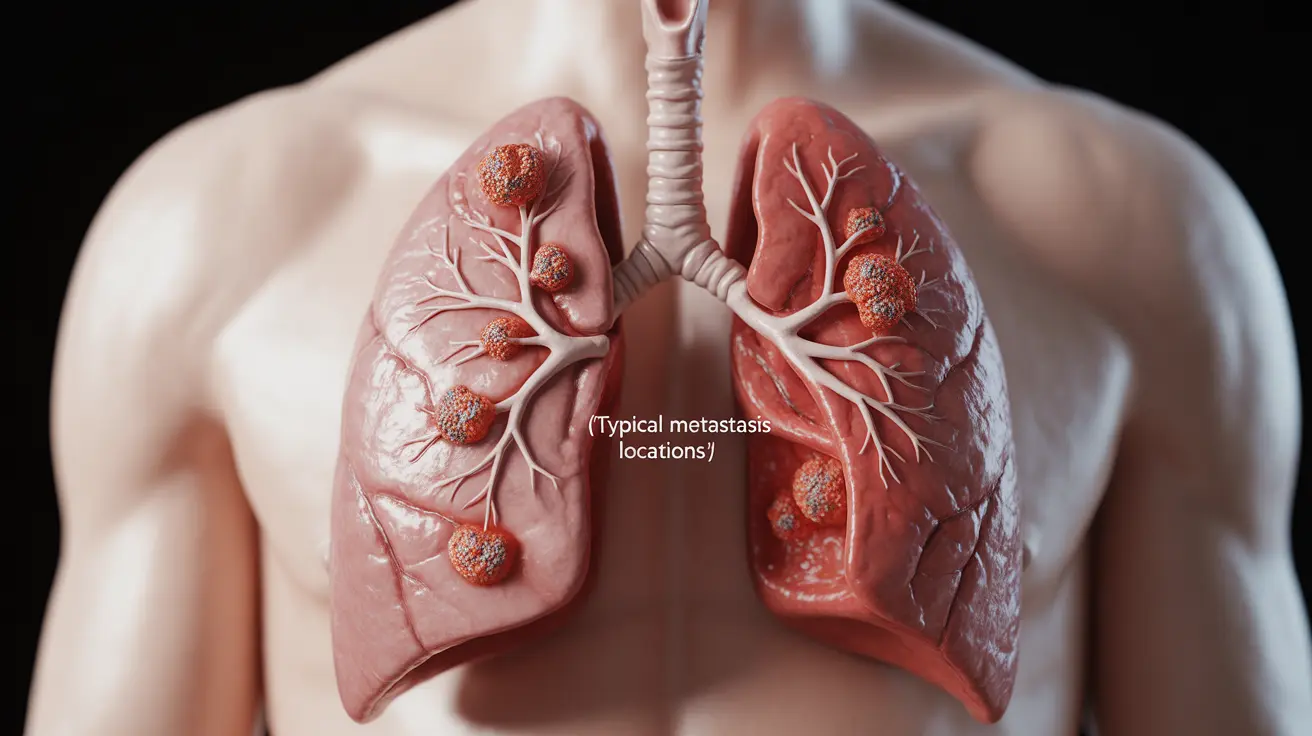Stage 4 squamous cell carcinoma of the lung represents the most advanced stage of this aggressive form of non-small cell lung cancer. At this stage, the cancer has spread beyond the lungs to other parts of the body, presenting unique challenges for both patients and healthcare providers. Understanding the nature of this disease, its symptoms, and treatment options is crucial for patients and their loved ones.
This comprehensive guide explores the key aspects of stage 4 squamous cell lung cancer, including its symptoms, treatment approaches, and factors affecting prognosis. We'll also discuss the latest advances in targeted therapies and immunotherapy that are changing the landscape of treatment for this condition.
Recognizing Stage 4 Symptoms
Stage 4 squamous cell carcinoma of the lung often presents with both respiratory and systemic symptoms due to its advanced nature. Common symptoms include:
- Persistent cough that worsens over time
- Chest pain that intensifies with breathing or coughing
- Unexplained weight loss
- Fatigue and weakness
- Shortness of breath
- Bone pain
- Headaches or neurological symptoms
- Hoarseness
- Recurring respiratory infections
These symptoms can vary significantly among patients, and their severity often depends on where the cancer has spread in the body.
Treatment Approaches for Advanced Disease
Treatment for stage 4 squamous cell lung cancer typically involves a multi-modal approach, combining different therapeutic strategies to manage the disease and improve quality of life.
Systemic Therapy Options
The primary treatment approaches include:
- Chemotherapy
- Immunotherapy
- Targeted therapy (when specific genetic mutations are present)
- Combination therapy approaches
Palliative Care
Palliative treatments play a crucial role in managing symptoms and improving quality of life. These may include:
- Pain management
- Radiation therapy for specific symptoms
- Procedures to manage fluid buildup
- Supportive care measures
Understanding Prognosis and Survival
The prognosis for stage 4 squamous cell lung cancer varies significantly among patients and depends on several key factors:
- Overall health status
- Age at diagnosis
- Response to treatment
- Presence of specific genetic markers
- Extent of metastasis
- Access to advanced treatment options
Advances in Treatment
Recent developments in cancer treatment have opened new possibilities for patients with advanced squamous cell lung cancer. Immunotherapy, in particular, has shown promising results in some patients, helping to extend survival rates and improve quality of life. These newer treatments work by helping the body's immune system recognize and fight cancer cells more effectively.
Risk Factors and Prevention
Understanding risk factors is crucial for prevention and early detection. While smoking remains the primary risk factor, other factors can contribute to the development of squamous cell lung cancer:
- Long-term exposure to secondhand smoke
- Occupational exposure to certain chemicals
- Family history of lung cancer
- Previous radiation therapy to the chest
- Environmental pollutants
Frequently Asked Questions
What are the common symptoms of stage 4 squamous cell carcinoma of the lung?
Common symptoms include persistent cough, chest pain, shortness of breath, unexplained weight loss, fatigue, and pain in areas where the cancer has spread. Patients may also experience recurring respiratory infections and systemic symptoms like fever and night sweats.
How is stage 4 squamous cell lung cancer typically treated?
Treatment typically involves a combination of approaches, including chemotherapy, immunotherapy, and targeted therapy when appropriate. Palliative care is also essential to manage symptoms and improve quality of life. Treatment plans are individualized based on specific patient factors and cancer characteristics.
What factors affect the prognosis and survival rate for stage 4 squamous cell carcinoma lung?
Prognosis is influenced by factors such as the patient's age, overall health status, extent of cancer spread, specific genetic markers present, and response to treatment. Access to advanced treatment options and early initiation of appropriate therapy can also impact outcomes.
Can targeted therapy or immunotherapy improve outcomes in advanced squamous cell lung cancer?
Yes, both targeted therapy and immunotherapy have shown promising results in improving outcomes for some patients with advanced squamous cell lung cancer. These newer treatment approaches can lead to better survival rates and quality of life compared to traditional chemotherapy alone.
Is smoking the main risk factor for developing squamous cell carcinoma of the lung?
Yes, smoking is the primary risk factor for developing squamous cell carcinoma of the lung. However, other factors such as exposure to secondhand smoke, certain occupational exposures, and environmental pollutants can also contribute to its development.




